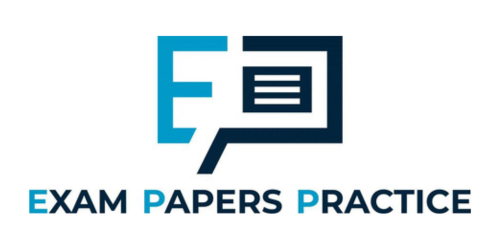AQA GCSE (9-1) Further Mathematics (8365) Topic Questions
Getting an A* in AQA GCSE (9-1) Further Mathematics (8365) may sound like a big challenge—but with the right resources and study strategies, it’s absolutely possible. At Exam Papers Practice, we provide carefully crafted topic questions to help you master every part of the syllabus, boost your confidence, and reach that top grade.
Below are the variety of study materials that can help you focus your revision and develop the skills necessary to perform at your best to achieve an A* rating.
Topic 1 - Number
Topic 2 - Algebra Functions
Topic 3 - Coordinate Geometry
Topic 4 - Calculus
Topic 5 - Matrix Transformation
Topic 6 - Geometry
What is AQA GCSE (9-1) Further Mathematics (8365)?
The GCSE AQA Further Mathematics (8365) is a challenging but rewarding course designed for high-achieving students who are aiming to study A-Level Maths or Further Maths. It extends the topics taught in the standard GCSE Mathematics course and introduces new, advanced content.
The exam is structured into two papers:
Paper 1 – Non-Calculator
Paper 2 – Calculator Allowed
Each paper is 1 hour 45 minutes and is worth 50% of the final grade.
Topics include:
Algebra (including functions and identities)
Geometry and Trigonometry
Calculus (basic differentiation)
Matrices and Vectors
Complex Numbers
Coordinate Geometry
Sequences and Series
Why Use Topic Questions?
Using topic questions is one of the best ways to prepare for the GCSE AQA Further Mathematics (8365) exam. Here’s why:
1. Focused Practice
Each topic question allows you to concentrate on a specific area, such as solving quadratics, working with matrices, or sketching graphs of functions. This is especially helpful if you’re struggling with one part of the course.
2. Identify Weak Areas
By practising topic-by-topic, you’ll quickly find out which concepts you’ve mastered and which need more revision. This helps you target your efforts efficiently.
3. Exam-Style Experience
Our topic questions are created to mirror the style, format, and difficulty of the real AQA exam. The more you practise, the more comfortable you’ll be when facing actual exam questions.
Key Tips to Achieve an A* in AQA GCSE (9-1) Further Mathematics (8365)
Scoring top marks requires more than just solving problems—it’s about studying smart. Here are some expert tips to help you succeed.
1. Master the Core GCSE First
Before diving into the tougher topics of Further Maths, make sure your standard GCSE knowledge is rock solid. This includes algebra, number work, and basic geometry. Weaknesses here will make the advanced topics harder.
2. Use Topic Questions Regularly
Set aside time daily or weekly to practise topic questions from Exam Papers Practice. Begin with the topics you find hardest, and gradually move on to reinforce others. Active recall and repeated exposure are key to retention.
3. Time Yourself
While practising, start timing your answers. This helps simulate exam pressure and trains you to think quickly and accurately under time constraints.
4. Review Your Mistakes
Don’t just mark your answers—go back and understand why you got a question wrong. Use our worked solutions to fix any misconceptions.
5. Create a Study Timetable
Divide your syllabus across a realistic revision schedule. Make time for both new learning and revision of previous topics.
6. Use Visual Aids
Diagrams, graphs, and geometric sketches are often used in Further Maths. Don’t skip them! Practice drawing and interpreting these to build confidence.
7. Practise Past Papers
Once you’re confident with topic questions, move on to complete papers under exam conditions. You can find these on our website too.
Are You Having Trouble with Your Studies? Get the Help You Need Today
If you’re struggling with your studies and looking for extra support, why not consider hiring a tutor or enrolling in summer school or Easter revision services? Whether you’re aiming to boost your grades or better understand complex topics, targeted revision can make a big difference. Accessing the right resources is crucial, and there are multiple options available to help you succeed.
Why Consider a Tutor for Your Studies?
A personal tutor can provide tailored support based on your individual learning needs. Tutors offer one-on-one sessions that focus on the areas where you need the most improvement. Whether it’s mathematics, science, or language arts, a tutor can provide targeted strategies and techniques to ensure that you understand key concepts and are prepared for upcoming exams.
Summer School and Easter Revision Services: A Great Opportunity
Summer and Easter revision services are an excellent way to prepare for exams while still having time to relax. These sessions are structured to help you revisit your syllabus, revise key topics, and practice with exam papers. These services offer intensive study periods, which can be highly beneficial for students aiming to refresh their knowledge and boost confidence.
Accessing the Board Syllabus for Efficient Studying
Accessing your exam board’s syllabus is one of the most effective ways to stay on track during your revision. The syllabus provides a clear outline of the topics you need to cover and allows you to prioritize areas that require more attention.
Where to Find the Best Educational Services
For further support, you can check out services offered by our Sister Companies Lite Regal International College and Lite Regal Education, both of which provide expert tutors and revision resources. Whether you need a tutor for personalized lessons or are looking to join a revision group, these services have a wide range of options to fit your study needs.
Aiming for an A* in AQA GCSE (9-1) Further Mathematics (8365) is a big ambition—but with the right tools and a smart approach, you can achieve it. Exam Papers Practice is here to support you with focused, syllabus-matched topic questions, detailed solutions, and revision strategies designed for students like you.
Start using our topic questions today, build your skills one area at a time, and walk into the exam room with confidence. Your A* is waiting.

